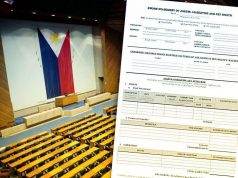Twitter says steps in place to protect integrity of PHL election conversations

By Arjay L. Balinbin, Senior Reporter
MICROBLOGGING and social networking service Twitter said on Monday that it has measures in place to protect the integrity of public conversations on the platform during the Philippine elections this year.
The previous presidential and vice-presidential debates hosted by the Commission on Elections generated around 3.5 million tweets, according to Twitter. This illustrates that Filipinos use the platform to get information about elections, learn about candidates and their agendas, and engage in civic discourse.
Monrawee Ampolpittayanant, head of public policy, government and philanthropy for Twitter in Southeast Asia, said during a webinar on Monday that the platform is “committed to facilitating meaningful political debate, driving civic participation and protecting the integrity of the election conversation from interference and manipulation.”
Among the steps adopted by Twitter is labeling misleading tweets. The objective, according to the company, is to provide additional context and help in reducing the visibility of misleading information.
Three policies are critical to ensuring the integrity of election-related conversations on the platform, Twitter noted. These are its policies on civic integrity, platform manipulation and spam, and synthetic and manipulated media.
Twitter said it suspended in January over 300 accounts reportedly promoting presidential candidate Ferdinand “Bongbong” R. Marcos, Jr. for violating the platform manipulation and spam policy.
The company noted that its team examines and responds to violation reports 24/7 in multiple languages, including Filipino.
Twitter also said that it has other features in place to make sure that conversations on its platform are based on credible information. These include election-focused search prompts that make it easier to find credible sources of information, customized emojis for election-related discussions, and the blue verified badge that lets users know if a source is trustworthy.



